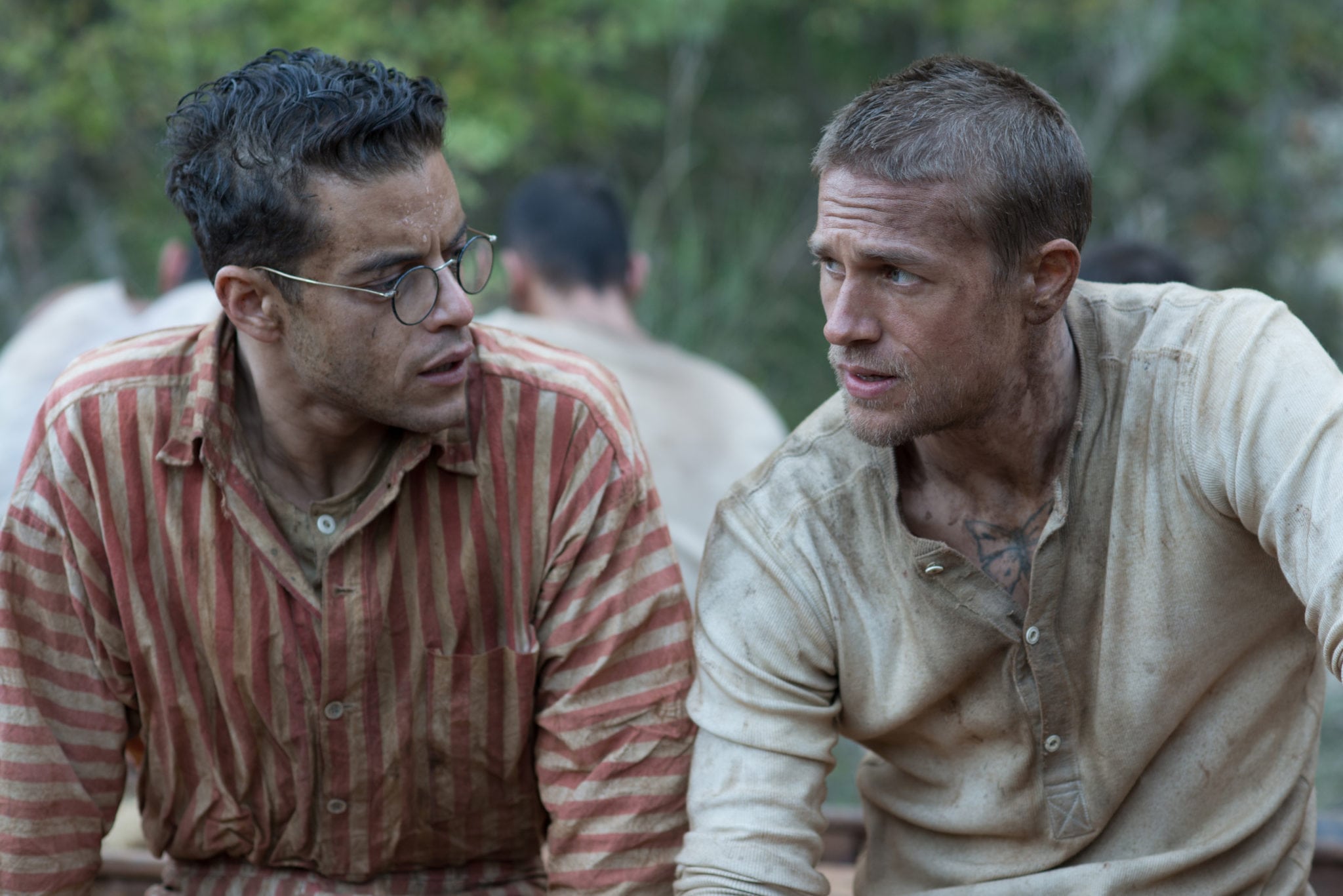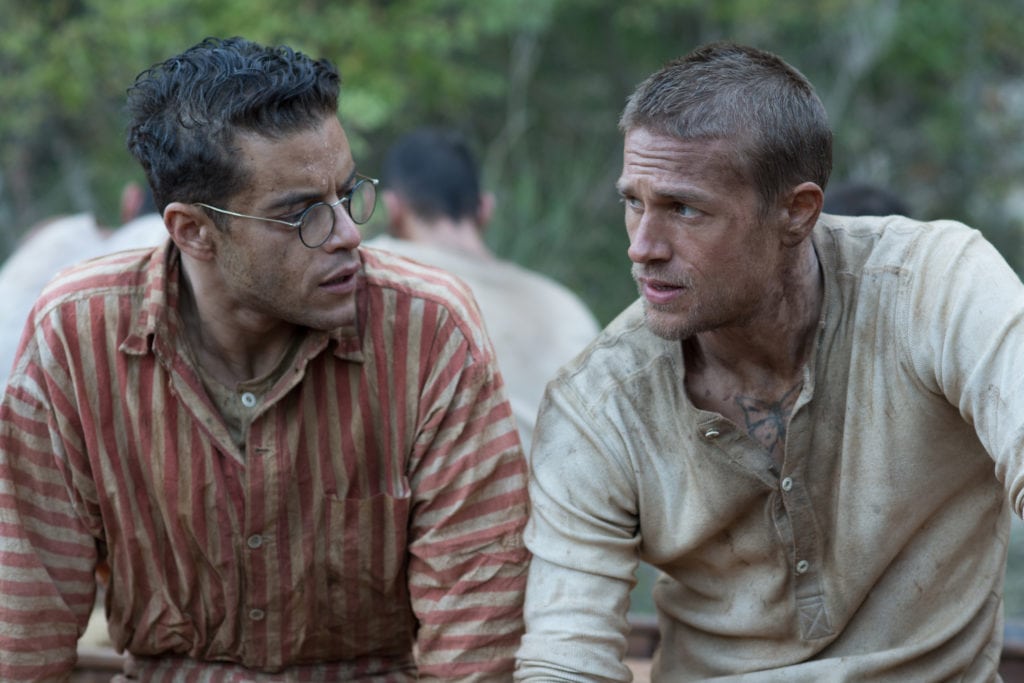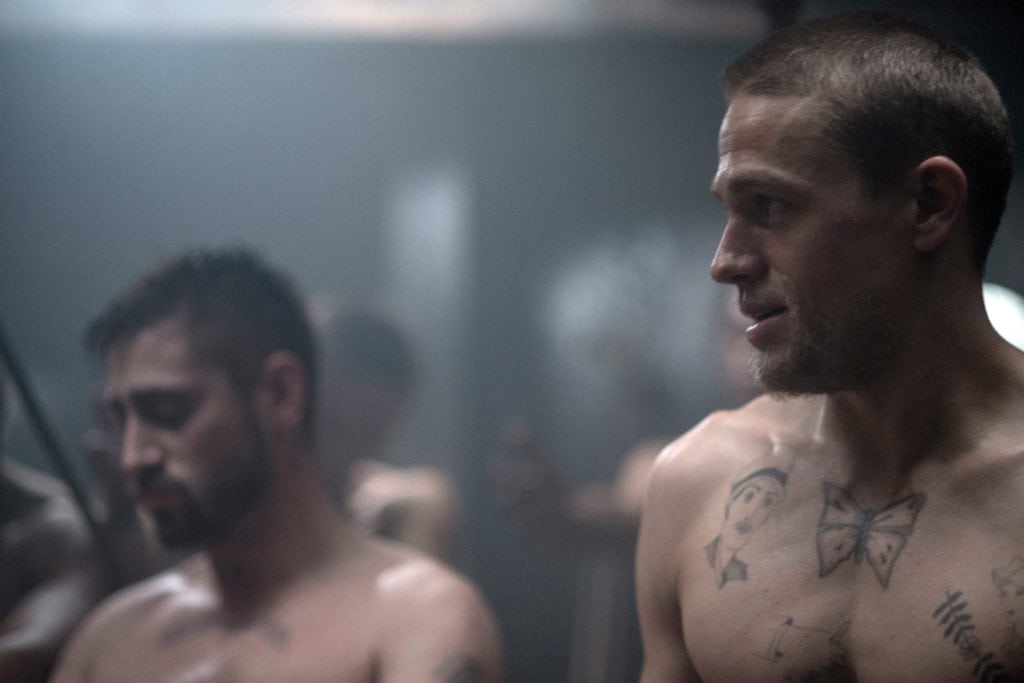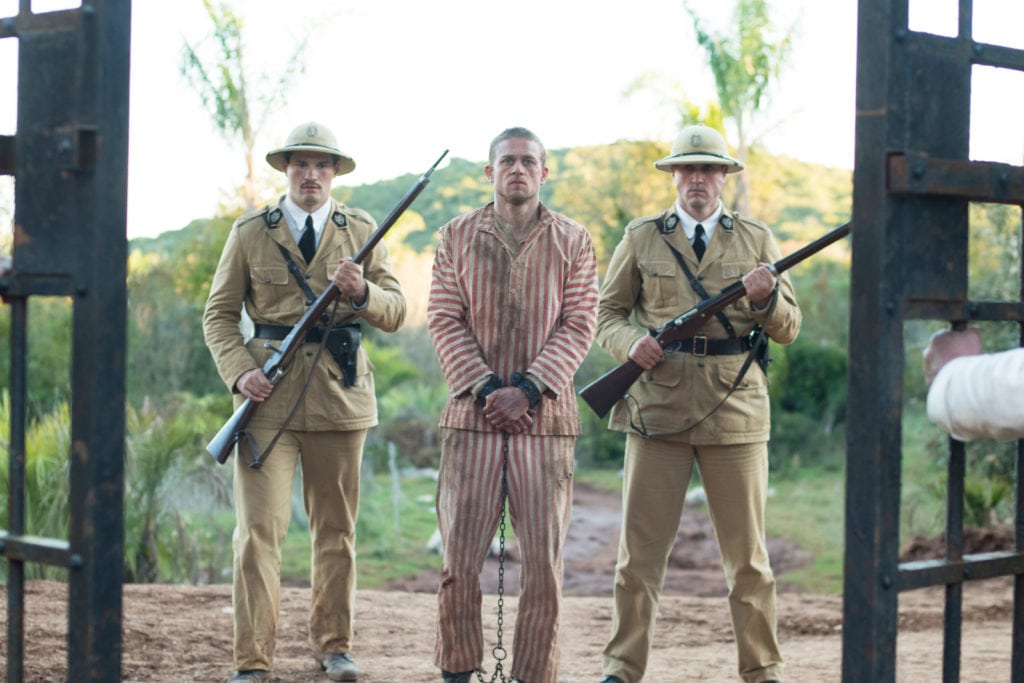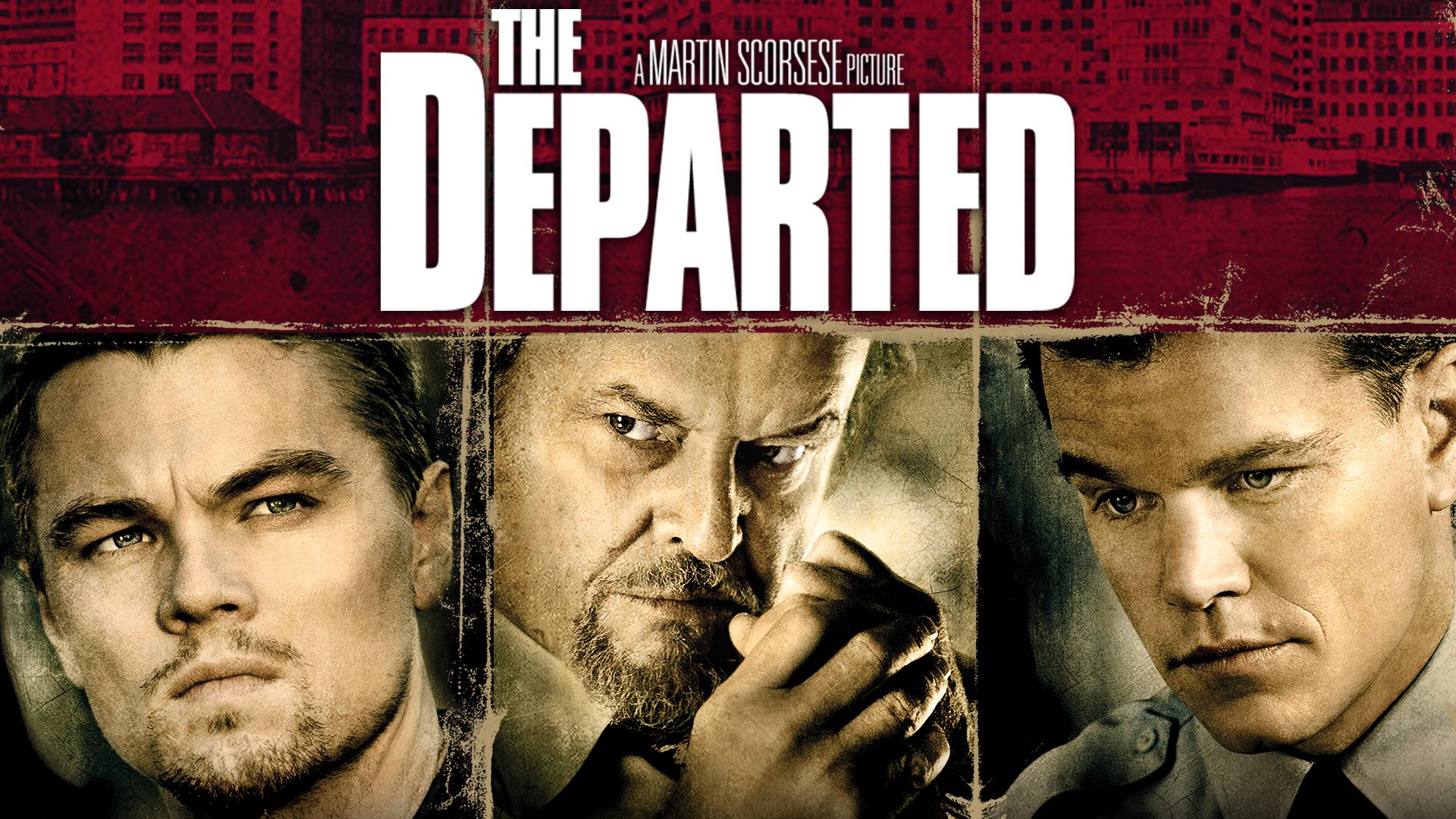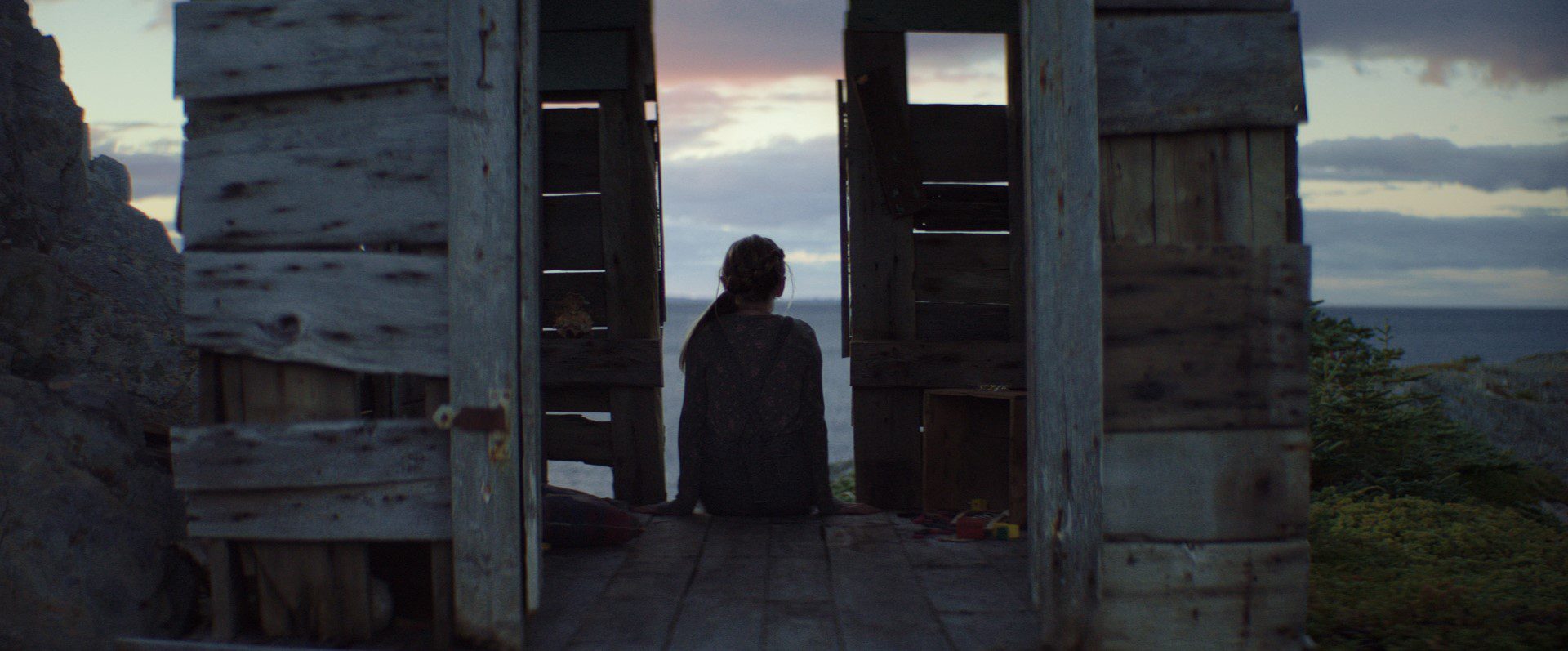?It?s not rehabilitation?we know that?s worthless?so we do our best to break you.?
Papillon is inspired by semi-autobiographical bestselling books (Papillon and Banco) and the 1973 film with Steve McQueen and Dustin Hoffman (with a screenplay by Dalton Trumbo).? Returning to such a classic film is challenging, but director Michael Noer has brought new life and a gritty vision to this new version.
Henri ?Papillon? Charri?re (Charlie Hunnam) is a small-time crook in 1931 Paris. When he runs afoul of a crime boss, he is framed for a murder and sentenced to life in the French penal colony in French Guyana. But Charri?re is determined to escape and return for vengeance. On the transport to the penal colony he befriends Louis Dega (Rami Malek) a meek counterfeiter rumored to have a stash of money. Charri?re makes a deal with Dega to provide him with protection in exchange for Dega funding his eventual escape.
Life in the penal system is difficult and violent. On arriving in French Guyana, the prisoners hear the rules. If you try to escape, we?ll shoot you. If we miss, the jungle or the sharks will get you. If you get caught, you will spend two years in solitary the first time, five years the second, then transferred to the notorious Devil?s Island. If you commit murder, you go to the guillotine. The prisoners are assigned hard labor and failure will result in severe punishment.
The partnership between Charri?re and Dega creates a bond between them that becomes not just about business, but about friendship. After Charri?re?s first escape attempt (and his two years in solitary), Dega has now moved into a position of trust?keeping the books for the warden. This provides a chance for another try at escape, this time with Dega going with him and two others.
Charri?re refuses to be broken, even by failure, even by years of solitary, even by beatings, even when taken to Devil?s Island. Dega, on the other hand, abandoned hope early on and hardened himself for the life in the prison system. He continues though to think that perhaps Charri?re will be able to make things better.
Contrary to the warden?s words at the top of this review, there is a kind of rehabilitation for Charri?re. He continues to have a hope of escape and a new life. That gives new meaning to his nickname, Papillon (butterfly). The butterfly is often seen as a symbol of resurrection and new life. As the years pass, it is a new life that Charri?re seems intent on finding?not the revenge that he sought at first. He tells Dega at one point after years in the prison colony, ?If I ever get out of here I?m going to lead a different life.?
Perhaps that is why when he finally found that new life and wrote his autobiographical books, they became bestsellers and prompted film adaptations. The riveting story of the absolute savagery and inhumanity within that prison setting eventually shifts to a story to hope and fulfillment. It is surely not an easy transformation. But the very fact that Charri?re not only maintained his humanity, but even grew in positive ways makes this a story worth celebrating.
Photo credit Jose Haro / Bleecker Street

